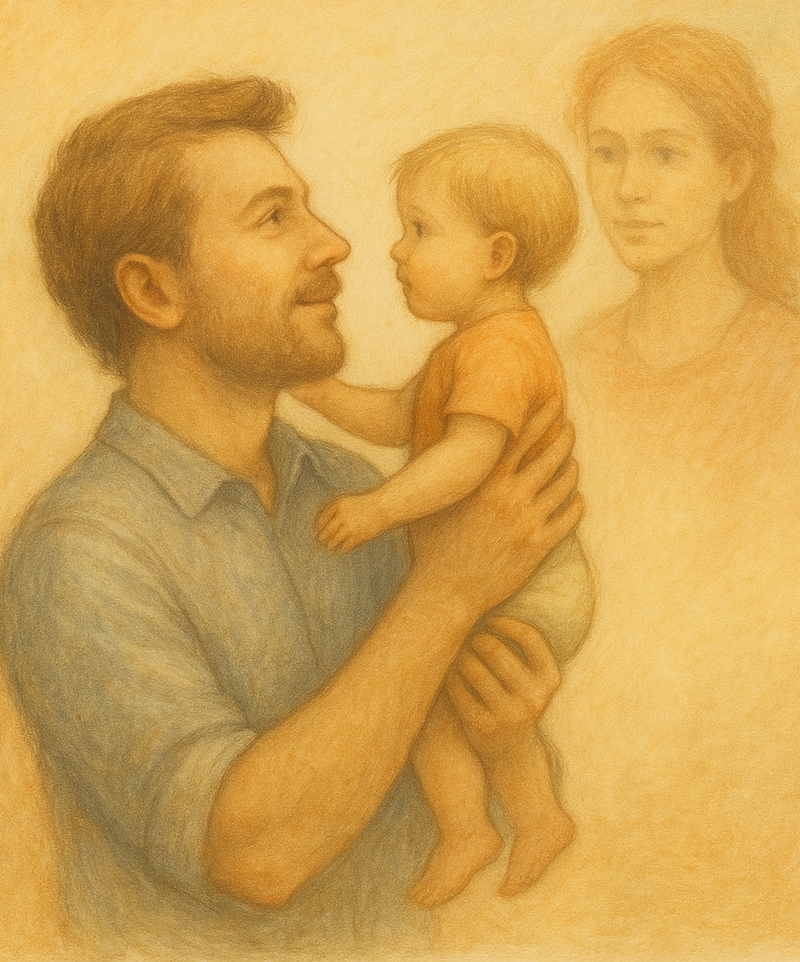My father wasn’t always as great as I thought.
It’s taken me a lifetime to see the truth behind his smile — the weariness, the guilt, the quiet ache of a man who didn’t know how to speak about pain.
When my parents divorced, the world split in two. My mother took the everyday life; my father took the silence. And we, the children, floated between them — half belonging to each, fully belonging to none. We saw him as the lucky one, the free one. But freedom, I’ve learned, can be the heaviest kind of prison.
The Price of Freedom
After the divorce, people said he finally got his life back.
He moved, he started over.
We saw him on weekends, where everything felt like a celebration — pizza, laughter, the illusion of ease.
But when we drove away, I sometimes saw his face through the rearview mirror. That quiet stare that said everything words could not.
He had no one to talk to.
Men of his generation were never taught to.
They were raised to be strong, to fix things, to endure — not to cry.
So he didn’t.
He worked, he joked, he smiled.
And he suffered, silently.

The Inherited Silence
We inherited that silence.
When fathers don’t talk, children learn not to ask.
We learned to fill the space with noise — school, work, dreams — anything but emotions.
Dad’s silence became our teacher.
His humor, his irony, his avoidance — all of it was love, disguised as survival.
He protected us from his pain so completely that we grew up not recognizing it in ourselves.
Between Guilt and Love
He carried guilt.
Not because he wanted to hurt anyone, but because he couldn’t fix what was broken.
He was a man from a time when emotions had no manual.
To be a man meant to carry, not to confess.
And yet, even in his distance, there was love.
You could see it in the way he prepared before we arrived — the cleaned apartment, the stocked fridge, the nervous energy of wanting it to feel like home again.
You could feel it in the way he waved goodbye — too long, too still, as if holding onto the last few seconds before we were gone.
The Fathers Who Faded Away
There are countless fathers who faded quietly after divorce.
They kept working, kept paying, kept breathing.
But a piece of them stayed frozen in the past.
They became visitors in their own families — always welcome, never home.
Some disappeared into new lives; others disappeared into themselves.
The strong men who never cried became the men who couldn’t stop crying inside.
Understanding Comes Late
It took me decades to see my father for who he really was.
Not a hero.
Not a failure.
Just a man — fragile, tired, loving in silence.
I wish I could tell him now:
“I see you. I understand.”
Because I do.
He wasn’t unbreakable; he was holding himself together with invisible threads of duty, regret, and love.
And maybe that’s what being a father truly is — loving without being seen, staying when no one asks you to, carrying what no one thanks you for.
Forgiveness
Forgiveness doesn’t mean forgetting.
It means seeing clearly — the good, the bad, the human.
It means realizing that our fathers weren’t gods. They were men trying to make sense of their own broken pieces while still being there for us, in the only ways they knew.
Now, when I think of him, I no longer see the man who left.
I see the man who tried.
And that’s enough.
Fathers, oh fathers — the men we thought were unbreakable.
They weren’t made of steel.
They were made of silence, guilt, and love.
And maybe that’s all any of us are.

By Chris...

Add comment
Comments